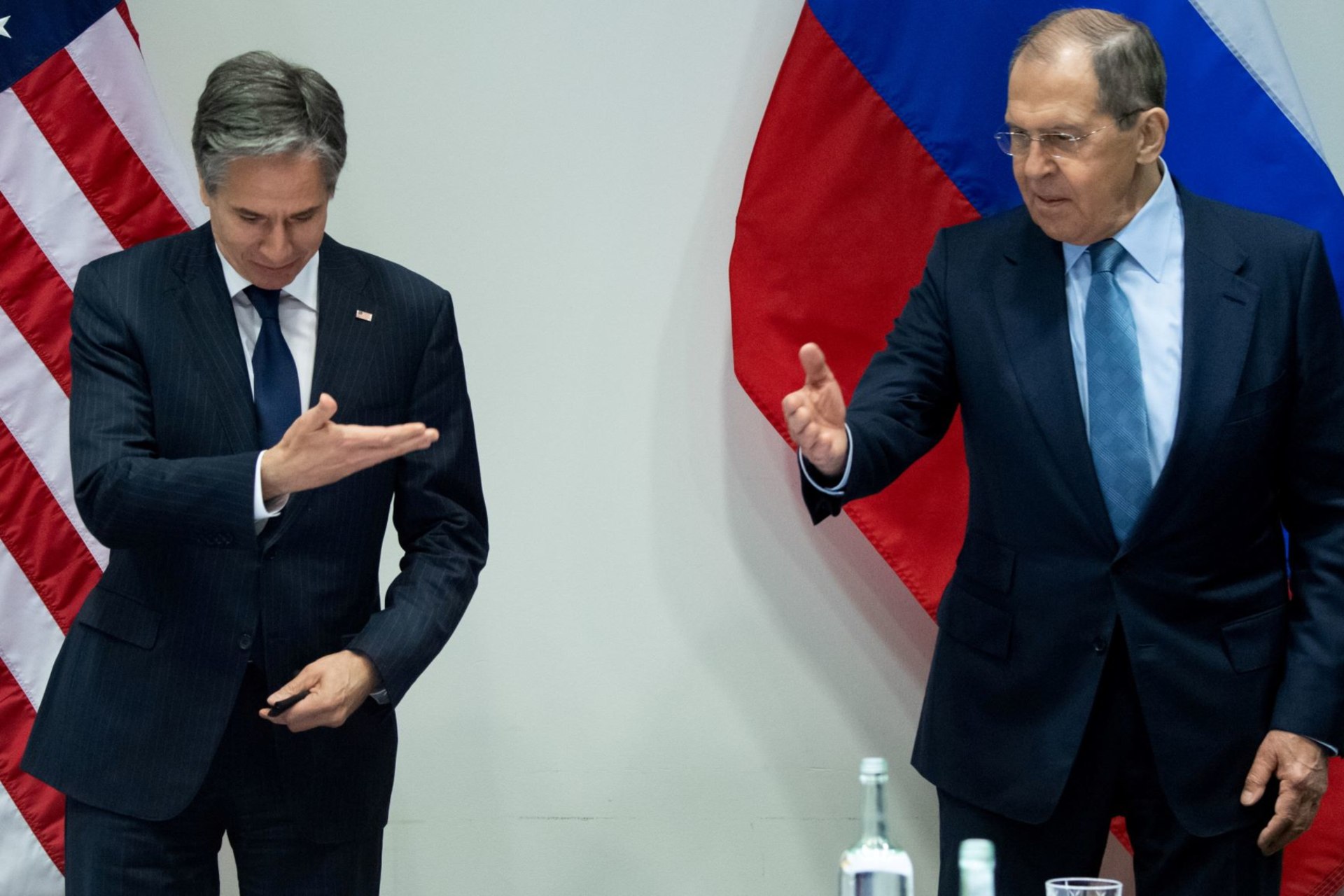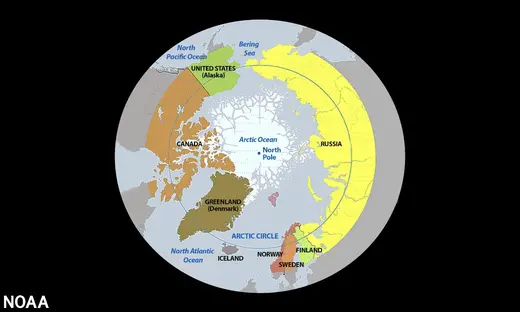How the Russia-Ukraine War Challenges Arctic Governance
The Russian invasion of Ukraine presents the greatest obstacle to Arctic governance since the Cold War. The boycott of the Arctic Council will permanently diminish its scope and leave Arctic security issues unresolved.

By experts and staff
- Published
In late January 2022—as Russia amassed 190,000 troops on the Ukrainian border—four Norwegian members of parliament nominated the Arctic Council for the Nobel Peace Prize in a last-ditch attempt to forestall the bloody conflict by highlighting the achievements of Russia-West cooperation. Although this may appear to be wishful thinking in hindsight, there was reason to believe that Arctic Council cooperation could spill over into other forms of dispute resolution. While the Arctic Council is not directly involved in security issues, its collaboration on environmental and scientific matters has fostered cooperation that has led to amicable security arrangements, such as the 2010 Barents Sea delimitation agreement brokered between Oslo and Moscow.
In late May 2021, less than nine months before Russia ultimately invaded Ukraine, Russian Foreign Minister Sergey Lavrov convened with his ministerial level peers in Reykjavik, Iceland as Russia assumed the revolving chairmanship of the Arctic Council. The chairmanship rotates every two years among the eight permanent members of the intergovernmental forum: the United States, Canada, Denmark, Finland, Iceland, Norway, Russia, and Sweden. Arctic Council chairmanship grants agenda-setting power bounded by the body’s core mission, as codified in the 1996 Ottawa declaration: promoting and preserving Arctic sustainable development and environmental protection.
Thus, in May 2021, as Russia began its second tenure as Arctic Council chair, most observers assumed it would proceed much the same as its rather uneventful term from 2004 to 2006. Moscow’s chairmanship priorities for 2021 were strikingly similar to those it espoused in 2004. Although Russia has sought reinstatement to the Arctic Chiefs of Defense Forum after having been suspended following its 2014 annexation of Crimea, the request was not included in its priorities. Instead, Moscow projected a welcoming posture, mentioning “cooperation” thirty times in its chairmanship priorities report.
The ministerial meeting in Iceland followed the cooperative path set by Russia’s chairmanship priorities. Although Minister Lavrov and U.S. Secretary of State Antony Blinken had strong disagreements over introducing a military component to the Arctic Council, the meeting ended on a conciliatory note, with Blinken citing the January 2021 renewal of the Strategic Arms Reduction Treaty as an example of the two nations’ ability to negotiate military-to-military. The conversation opened the door for serious discussion on sensitive issues such as high north military-to-military communication and Arctic resource development. Moreover, the meeting’s tone signaled a cooperative shift from the bombastic rhetoric Secretary of State Mike Pompeo used before the ministerial meeting in Finland just two years earlier.
Despite these positive indicators, the Arctic Council’s ability to weather geopolitical storms abruptly ended with Russia’s invasion of Ukraine. On March 3, 2022, less than two months after the Arctic Council was nominated for the Nobel Peace Prize, the seven other permanent members of the council took an unprecedented step in declaring they would be “pausing participation in all meetings of the [Arctic] Council and its subsidiary bodies.” The forum previously navigated diplomatic disagreements among member states, including over the Iraq War in 2003, Georgian War in 2008, and annexation of Crimea in 2014, but disagreement over the invasion of Ukraine was irreconcilable. Not only does this change the future of Arctic relations, but it also (temporarily) ends Russia’s participation in one of its few remaining soft power venues capable of meaningful international coordination.

How Will the Diplomatic Fallout Change Arctic Governance?
Following the seven-member states’ boycott of the Arctic Council, there has been speculation that the West will fundamentally reshape Arctic governance by forming a new international body without Russia, known as “Nordic Plus.” Theoretically, this forum would include the seven protesting states and Arctic indigenous peoples (including those from Russia). While Nordic Plus would have shared values and government norms, it would forfeit the institutional legitimacy and progress that the Arctic Council has fostered. Furthermore, little utility exists in such an organization without Moscow.
Russia accounts for nearly half of the Arctic’s population, over half of the Arctic’s coastline, and the majority of Arctic industry. It also dominates Arctic energy production, fishing, and shipping. Moreover, the Russian Arctic remains critical to addressing global environmental issues such as permafrost thawing and wildfire prevention. Without Russia in the Arctic Council, scientists will not be able to share data between weather observatories or monitor Siberian permafrost melt. Given Russia’s Arctic assets, any organization governing the region without Moscow would be attempting to oversee an area mostly outside its control. Even if a forum like Nordic Plus attempted to include other Russian partners such as indigenous representatives, it is hard to imagine that Moscow would permit such representatives to attend.
These rumors notwithstanding, the structure of the Arctic Council is likely to stay intact, though its operations will surely change. In all likelihood, the Arctic Council will resume operations when Russia turns over its chairmanship to Norway in spring 2023, or when a resolution is reached to end the war in Ukraine. But the story of future Arctic governance does not end here.
The Arctic Council will lose legitimacy and goodwill and its agenda will shrink in both scope and size as future Russian statements on Arctic cooperation will likely be met with more skepticism from the other seven members than ever before. While some might argue that this was already the case after Russia’s annexation of Crimea, the reverberations felt in the Arctic from the two episodes of Russian belligerence were of vastly different scales. The war in Ukraine has led to all seven Arctic states implementing unprecedented sanctions against Russia and boycotting the Arctic Council. The reaction to the annexation, by contrast, was lukewarm. While the states ended most military-to-military discussions, they also increased regional cooperation by forming the Arctic Coast Guard Forum in 2015.
Many have seen the Arctic region as a zone of peace, insulated from external political disputes. The war in Ukraine and subsequent boycott of the Arctic Council will prove devastating to this theory of Arctic exceptionalism, and to the council’s position as the foundation of Arctic governance going forward. High tensions among members of the council will likely mean that only the least controversial Arctic issues will be addressed when the council reconvenes. The least contentious issues are not coincidentally the three binding treaties passed by the Arctic Council: the Agreement on Search and Rescue in the Arctic (2011), Agreement on Marine Oil Pollution in the Arctic (2013), and Agreement on Enhancing Arctic Scientific Cooperation (2017).
Recent progress on imposing international legal frameworks on more sensitive issues such as fishing disputes, energy production, continental shelf claims, and freedom of navigation will come to a standstill as the war in Ukraine drags on and geopolitical tensions rise. While the Arctic Council was never directly responsible for drafting and enforcing agreements on some of these matters, it served as the facilitator of regional diplomacy. Moreover, the forum played a pivotal role in proposing oil and gas drilling guidelines and encouraging states to join the International Agreement to Prevent Unregulated Fishing in the High Seas (2018). Unfortunately, these issues become more difficult to solve with every passing year as the Arctic Ocean becomes increasingly navigable, thus heightening the probability of interstate conflict.
Rising tensions will transition the Arctic Council from a high-level diplomatic facilitator to a low-level tactically-oriented talk shop. Arctic Council representatives will likely eschew ministerial-level discussions. Foreign Minister Lavrov is personally sanctioned by the United States, Canada, European Union, and the United Kingdom and he is unlikely to ever step foot in an Arctic Council meeting again. This incidentally means that the ad hoc Arctic Five group, which includes the five Arctic littoral states of the United States, Canada, Denmark, Norway, and Russia and almost exclusively works at the ministerial level, will become defunct. By contrast, the Arctic Council’s six working groups and scientific research operations are politically insulated because they work at a technical level and are one layer removed from political leadership.
Although the role of the Arctic Council may adapt to changing geopolitical currents, it is vital for Arctic governance that the council preserves all eight of its permanent members and fulfills its commitments to its core missions of sustainable development and environmental stewardship. There remains a need for a forum to address transborder regional issues that cannot be effectively undertaken by individual states, yet are too localized to be addressed by a global forum. If there is an institution that can cooperate in the darkest of times, it is the Arctic Council. But if the seven members of the council do not rejoin when Norway assumes the chairmanship in May 2023, it is likely that the much-touted race for the Arctic will accelerate in a dangerous governance vacuum.
Daniel McVicar is a Director for the White House Writers Group.